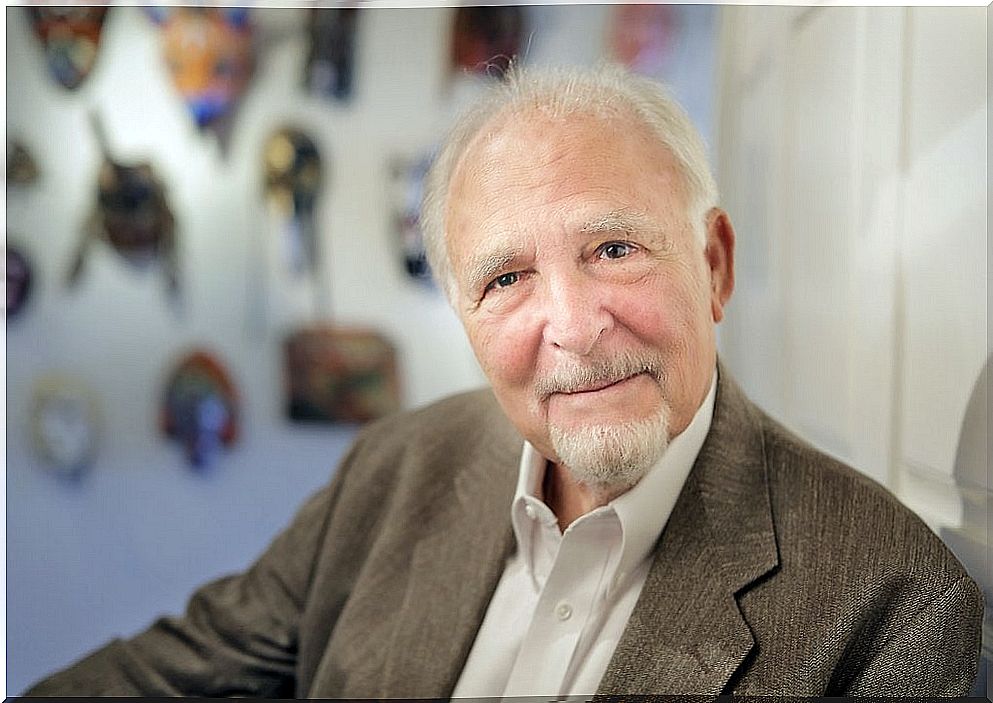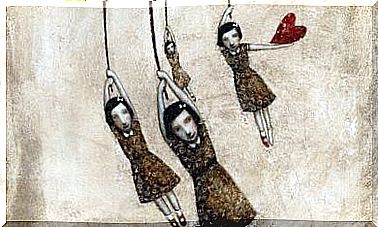Paul Ekman’s 10 Best Sayings

This American psychologist (Washington, 1934) is an expert in researching emotions and the facial expressions that go with them. His more than 14 books and around 200 published newspaper articles guarantee his career. To get to know him better, here are the ten best quotes from Paul Ekman!
He has been a professor at the University of California for over 30 years and is currently considered one of the most prestigious professors of the twenty – first century. In 2009 he was named one of the 100 most influential people in the world by TIME Magazine .
He has also been an advisor to the United States Department of Defense and the FBI. In addition, he has developed workshops and interactive training programs online with the aim of educating people in emotional awareness.
From Darwinian ideas
Paul Ekman’s initial idea was that emotions were culture-determined. However, as he progressed with his research, his way of thinking changed radically.
In such a way that his discoveries have led him to adopt an evolutionary perspective, following the lead of the eminent English naturalist Charles Darwin. This view, and specifically Ekman’s, refers to the fact that emotions are universal and that their origin is biological rather than cultural.
In addition, the scientist has made a significant contribution to the investigation of the social aspects that cause lies, or the reasons why they are told. And for that, he is also currently considered an expert at detecting lies.

10 quotes from Paul Ekman that summarize his ideas
Some of his most emblematic titles are Emotion in the Human Face (1972) , Telling Lies: Clues to Deceit? (1985) , Why Kids Lie: How Parents Can Encourage Truthfulness (1991) , What the Face Reveals (1998) and Emotions Revealed (2003).
Many of his findings have inspired the popular television series Lie to Me and led Ekman to publish the documentary The Human Face for the American television network BBC.
While we could list plenty of quotes from this great psychologist, below we highlight the ones that are considered to be Paul Ekman’s ten best quotes. Without a doubt, even today, they invite us to deep reflection. Here they come!
About lies…
Some of Paul Ekman’s most iconic statements about lies include:
He assumes that lying is an elementary characteristic of people. It plays an essential role in our lives. He believes that fully understanding them (how lies are camouflaged, why they are told, how they are expressed and how they can be detected) is relevant to almost all human affairs.
Ekman is considered a co-discoverer of the micro-facial expressions. As he demonstrated with Wallace W. Friesen, these can be used to detect lies. And this with a certain degree of reliability.
About emotions…
Some of Paul Ekman’s most emblematic statements about emotions are:

Ekman believes that emotions are innate. In this way, people from all over the world laugh when they are or appear to be happy. Or they open their eyes wider when they are surprised or pretending.
He therefore attributes to cultures the role of dissimilation, exaggeration, concealment or suppression of gestures and emotions.
The face: an open book
At first, Ekman considered that there were six universal gestures for six other universal emotions (fear, anger, joy, sadness, disgust, and surprise), but later expanded these to seventeen. Later still , he developed the Facial Action Coding System (FACS) to categorize all human expressions that we can somehow identify in the face.
This method classifies facial expressions by studying the movements of the facial muscles. The method takes into account what a person wants to express when he pulls his eyebrows down, wrinkles his nose, blinks, lifts or turns his head, or the direction and inclination of the head. Everything counts.

As you can see, the basis of Paul Ekman’s research is the characteristics and conditions of man. His contributions, for example, were the guarantor of the National Institute of Mental Health ‘s Prize for Scientific Research up to three times .
Today, the results of his more than 40 years of valuable discoveries are being applied to a wide range of fields, from researching schizophrenia to detecting lies. A professional well worth keeping in mind, don’t you think?









